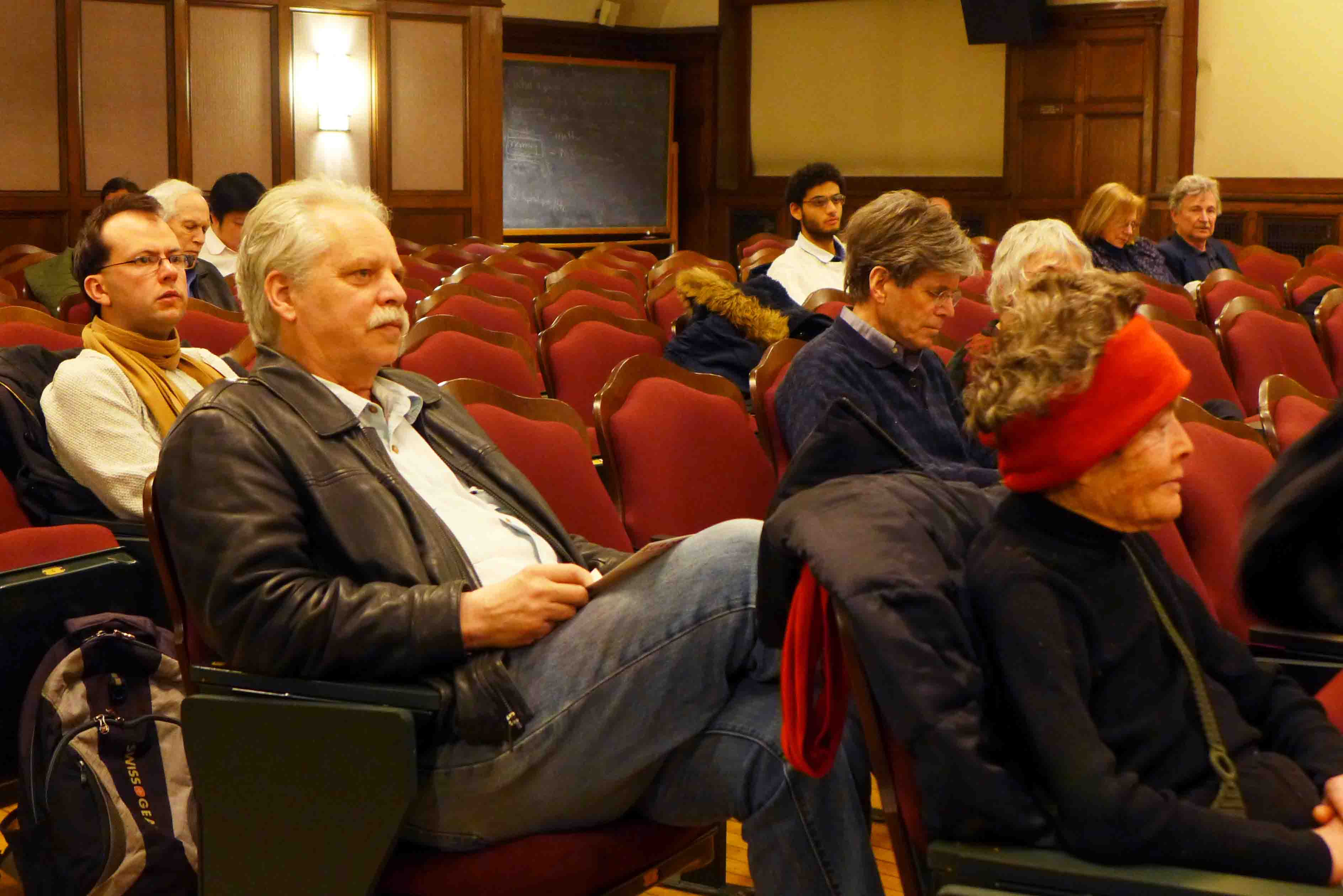
Courtesy of John Mackay
Sixty-five-year-old films may be old, but some never lose their significance. A select few made reappearances on screen at the Whitney Humanities Center last Friday and Saturday.
The European Film Conference, an annual event in which the event’s organizers base the theme around a specific year, featured films from 1951 including the Italian film “Europa ’51” and the British film “Pool of London.” The event also involved panel discussions both days with Yale Film and Media Studies professors and graduate students as well as professors from other universities such as the Massachusetts Institute of Technology. Roughly 80 people attended the evening screenings.
“The idea behind the conference isn’t necessarily to show the most famous or well-known films from that year but to really think deeply about what film culture was like in that year and how were larger political or social factors encountered through film,” said Kirsty Dooston GRD ’19, a student in the combined history of art, film and media studies programs and the program coordinator for the conference.
Dooston said one of her personal highlights from the show was the short film “My Room Via Ancona,” directed by Margaret Tait, who she described as one of Scotland’s most influential experimental filmmakers. Dooston said she shares a cultural and familial background with Tait, noting that both her family and Tait’s are related and from Orkney, a small cluster of islands northeast of Scotland.
“I wish people would just drop in at any time to come to fantastically interesting films shown on beautiful conditions of 35 mm,” Andrew said. “We had a spectacular projectionist who worked on five different formats of films. Not many places can do this, and that’s why people come from New York and other places to see the films.”
Preparation for the conference began seven months ago. Film and Media Studies Professor Dudley Andrew, one of the organizers for the event, said that many of the attendees came from outside of the Yale community.
Although the conference was called “Cinema in the Cold War Era” and some of the films explicitly dealt with East-West relations shortly after World War II, Dooston said the organizing committee wanted to explore other pressing social issues in the 1950s. Besides the Soviet propaganda films that were screened Saturday morning, he said, the conference also focused on issues such as female sexuality and the question of race in post-imperial Britain. He added that the committee also focuses on showing the breadth of filmmaking styles and genres during the time period, including neo-realism, film noir, romantic comedy and political satire.
“I look forward to the European film conference every year, but this year was particularly magnificent because of how utterly strange and surreal the 1950s are for cinema,” said Leana Hirschfeld-Kroen GRD ’20.
Dooston said that the conference this year prioritized screening films that have been traditionally hard for the general public to view. She noted, for example, that to the best of her knowledge, the French comedy “Edward and Caroline” had never before been screened in America with subtitles. The event organizers subtitled the film especially for the conference, and people traveled from outside of Connecticut just to see the film, she added.
Similarly, the Soviet propaganda film “Farewell, America” was a priority because it is also difficult to see on 35 millimeter film with English subtitles, she said.
The committee will meet next week to decide the films to show at the European film conference next year.







